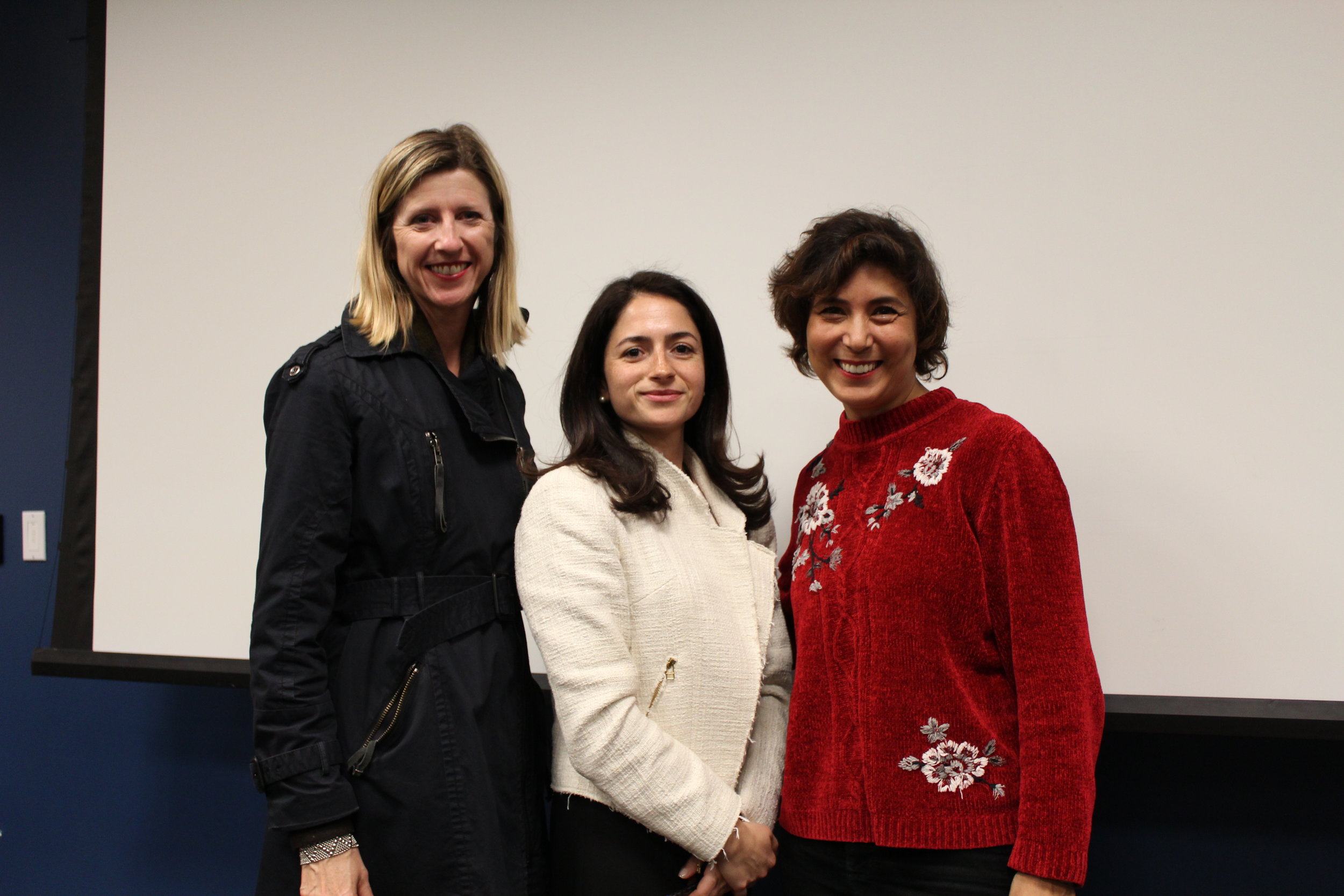Talk with Ms. Raife Gülru Gezer, the Turkish Consul General Los Angeles
GlocallyConnected founders, Dr. Selin Nielsen and Sherry Mackay with the Turkish Consul General Los Angeles.
On January 18th, 2017, the University of California Riverside hosted Ms. Raife Gülru Gezer, the Turkish Consul General Los Angeles to speak about the attempted coup in Turkey and its aftermath.
Although Turkey has had multiple coups in the past years, the tragedy that occurred this past July cannot be undermined: 240 died and 2195 were wounded.
Gezer was “surprised” and she knew the situation was serious. She was assertive on her stance: it was a terrorist campaign spearheaded by Fethullah Terrorist Organization (FETO) to infiltrate the Turkish Republic and overthrow the president. She compared the coup to the 911 attack to highlight the sentiments toward solidarity and national security.
Ms. Raife Gülru Gezer speaks about national security in Turkey.
“People stood outside of tanks to advocate and uphold democracy,” Gezer asserts. The people of Turkey did not want military intervention in 2016 and they were sure of that. In that note, Turkey was under State of Emergency to fight FETO and cleanse the infrastructure. As a result, more than 10,000 civil servants were discharged.
Amongst other nations, Turkey has been actively hosting refugees globally. Gezer makes a point that the country is facing many instability especially within its borders. Turkey is 600 miles away from Syria and 150 miles away from Iraq. Turkey is susceptible for internal and global conflict.
Ms. Raife Gülru Gezer says that Turkey is not the only nation battling the notions of “freedom vs security.” An array of countries are experiencing the same thing on a global scale. However, as we continue to face the largest human displacement since World War II, let us not forget the urgency of accommodating the increasing numbers of refugees coming in these countries: they are asylum seekers in search of safety. What sort of protection and security do refugees receive in their host nations? As we have seen with the 2015 Paris attack, many pointed fingers at refugees. Many criticized border security and some concluded that nations are becoming too lax with their policies which potentially ushers in “terrorists.” The “us vs them” culture is widely promulgated today and without proper legal protection, it is easy for refugees to be conveniently blamed.
Current correspondence suggests that there may be a lack of transparency within the UNHCR camps in Turkey that reveals conditions of refugees who were deported from Greece to Turkey: "A UNHCR representative in Athens wrote in a letter that the organisation has not been able to regularly access refugee camps in Turkey or monitor whether anyone sent there from Greece is given legal protection, according to a copy of the document that was published on the website of the NGO Statewatch" (EurActiv).
Despite the harsh winter conditions, hundreds of refugees in Serbia are refusing to go into camps because of fears of deportation: "They have deported many people from Bulgaria... We are scared. If they deport us to there, Bulgaria will deport us back to Afghanistan," says Akbar, an Afghan refugee(Aljazeera). Although the United Nations condemned the "pushback policy," deportation remain a constant worry for refugee.
We ended the talk with a Q&A session and one thing resonated: perspective is everything. To truly understand and address global humanitarian issues, perspective(s) have to be considered: a two way dialogue must be engaged.
By: Kristina Fernandez, GC Director of Social Relations



